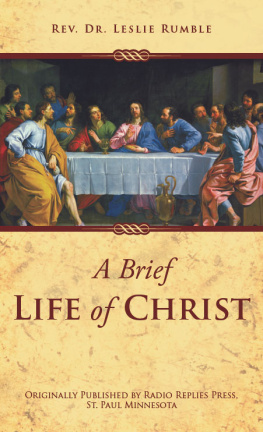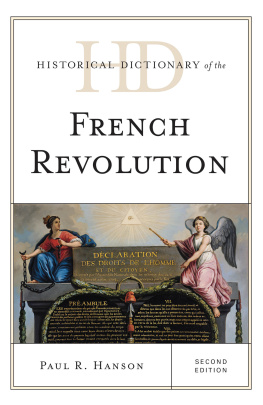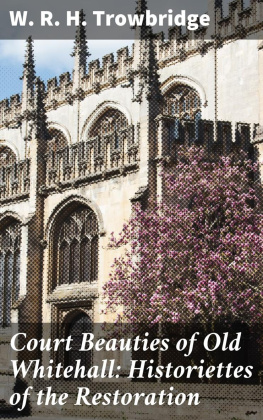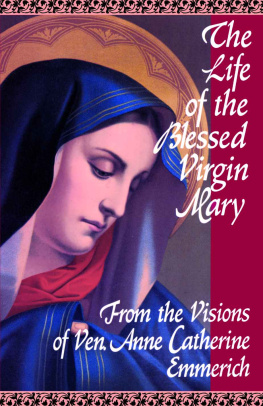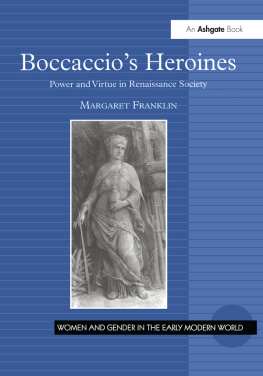PREFACE
IN the histories of the four women whose lives are here related, I have tried, as far as is possible in the limited space, to give an idea of the various ways in which the Revolutionary tempest at the close of the eighteenth century and the eventful years which preceded and followed it, affected, and were regarded by, persons of the different parties and classes to which they belonged.
The characters of the four heroines form as strong a contrast as their circumstances, principles, and surroundings.
In Mme. Le Brun, the most gifted of all, we see a beauty, a genius, and a woman unusually charming and attractive, thrown, before she was sixteen, into the society of the magnificent, licentious court of Louis XV. Married to a dissipated, bourgeois spendthrift, for whom she had never cared; sought after, flattered, and worshipped in all the great courts of Europe; courted by fascinating, unscrupulous men of the highest rank, without the protection of family connections and an assured position; yet her religious principles, exalted character, and passionate devotion to her art, carried her unscathed and honoured through a life of extraordinary dangers and temptations.
She emigrated early, and far from being, as in most cases, a time of poverty and hardship, her exile was one long, triumphant career of prosperity.
Owing to her brilliant success, to the affection and friendship which surrounded her wherever she went, to her absorbing interest in her art, the delightful places and society in which she spent her time, and also to her own sunny, light-hearted nature, her long life, in spite of certain serious domestic drawbacks and sorrows, was a very happy one. Her wonderful capacity for enjoyment, her appreciation of beauty in nature and art, the great interest she took in matters intellectual and political, her pleasure in the society of her numerous friends, and her ardent devotion to the religious and royalist principles of her youth, continued undiminished through the peaceful old age which terminated her brilliant career.
With the same religious and political principles, the conditions of life which surrounded the Marquise de Montagu were totally different. A contrast indeed to the simple, artistic household, the early grief, poverty, and hard work, the odious step-father, the foolish mother, the worthless husband and daughter, the thousand difficulties and disadvantages which beset Mme. Le Brun, were the state and luxury, the sheltered life, the watchful care, and powerful protection bestowed upon the daughter of the house of Noailles; her mother, the saintly, heroic Duchesse dAyen, her husband the gallant, devoted Marquis de Montagu.
She also was thrown very early into society; but she entered it as a member of one of the greatest families in France, surrounded by an immense number of relations of the highest character and position.
Neither a genius nor yet possessed of any great artistic or intellectual talent, without worldly ambition, little attracted by the amusements of society, she was a sort of mixture of a grande dame and a saint.
The lofty asceticism of her theories and practice was perhaps almost too severe for ordinary mortals living in the world, and in some respects better adapted for a monastic than a secular life; her emigration, so long delayed, was no time of success and happiness: long years of terror, danger, poverty, fearful trials, and sorrows endured with heroic fortitude and angelic patience, passed before she was restored to France and to the ancient castle which was the home and refuge of her later life.
In Mme. Tallien we have a woman exactly opposite to the other two in character, principles, and conduct. Differing from both of them in birth and circumstancesfor she was the daughter of a Spanish banker of large fortunewith extraordinary beauty, the hot, passionate blood of the south, a nature, habits, and principles undisciplined by authority and unrestrained by religion, she was early imbued with the creed of the revolutionists, and carried their theories of atheism and licence to the logical consequences.
Yet the generosity and kindness of her heart, and the number of victims she saved, outweighed, though without effacing, the disorders of her earlier life, during the latter part of which, as the wife of a Catholic, royalist prince, whose love she returned and to whose opinions she was converted, she deeply regretted the errors of Notre Dame de Thermidor.
In Mme. de Genlis we have a fourth and more complex type, a character in which good and evil were so mingled that it was often hard to say which predominated. With less beauty than the other three but singularly attractive, with extraordinary gifts and talents, with noble blood and scarcely any fortune, she spent a childhood of comparative poverty at her fathers chteau , where she was only half educated, and at seventeen married the young Comte de Genlis, who had no money but was related to most of the great families of the kingdom.
From this time began her brilliant career. Essentially a woman of the world, delighting in society and amusement, though always praising the pleasures of solitude and retirement, she entered the household of the Duchesse dOrlans, wife of the infamous Philippe-galit, and while constantly declaiming against ambition managed to get all her relations lucrative posts at the Palais Royal, and married one if not both her daughters to rich men of rank with notoriously bad reputations.
Perpetually proclaiming her religious principles and loyalty to the throne, she was suspected of being concerned in the disgraceful libels and attacks upon the Queen, was on terms of friendship with some of the worst of the revolutionists, rejoiced in the earliest outbreaks of the beginning of the Revolution, and while she educated the Orlans children with a pompous parade of virtue and strictness, was generally and probably rightly looked upon as the mistress of their father.
She was a strange character, full of artificial sentiment, affectation, and self-deception, and, unlike the first three heroines of this book, the mystery and doubts which hung over her have never been cleared up.
Against the saintly Marquise de Montagu no breath of scandal could ever be spoken. Such calumnies as were spread against Mme. Le Brun, the work of the revolutionists, who hated her only for her religion and loyalty, never believed by those whose opinion would be worthy of consideration, soon vanished and were forgotten.
The liaisons of Mme. Tallien had nothing doubtful about them.
But the stories against Mme. de Genlis have never been cleared up. Much that was said about her was undoubtedly false, but there remain serious accusations which can neither be proved nor disproved; and that a long, intimate friendship between a prince of the character of Philippe-galit and a young, attractive woman who was governess to his children should have been no more than a platonic one, passes the bounds of credibility.



